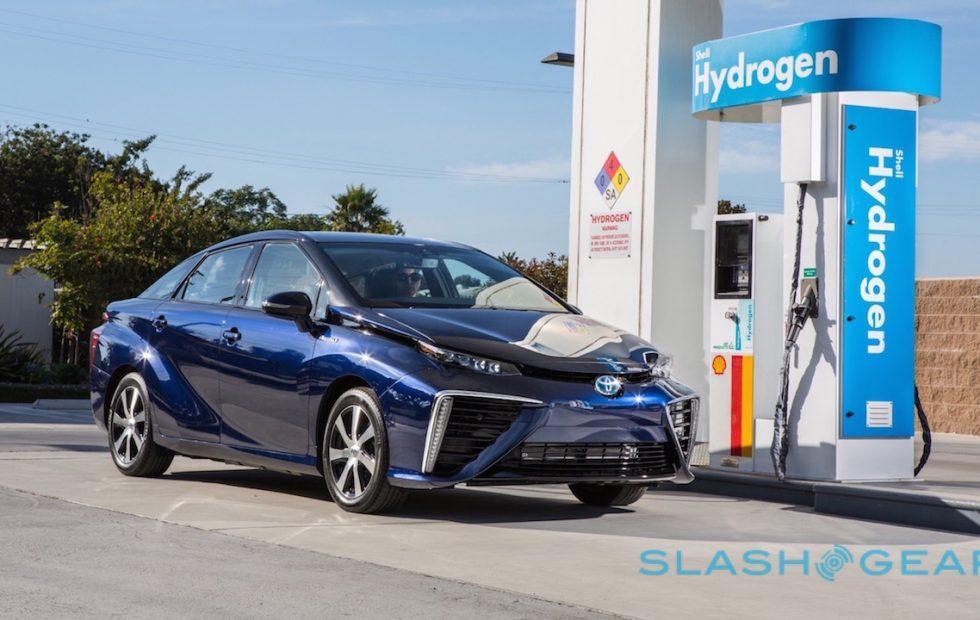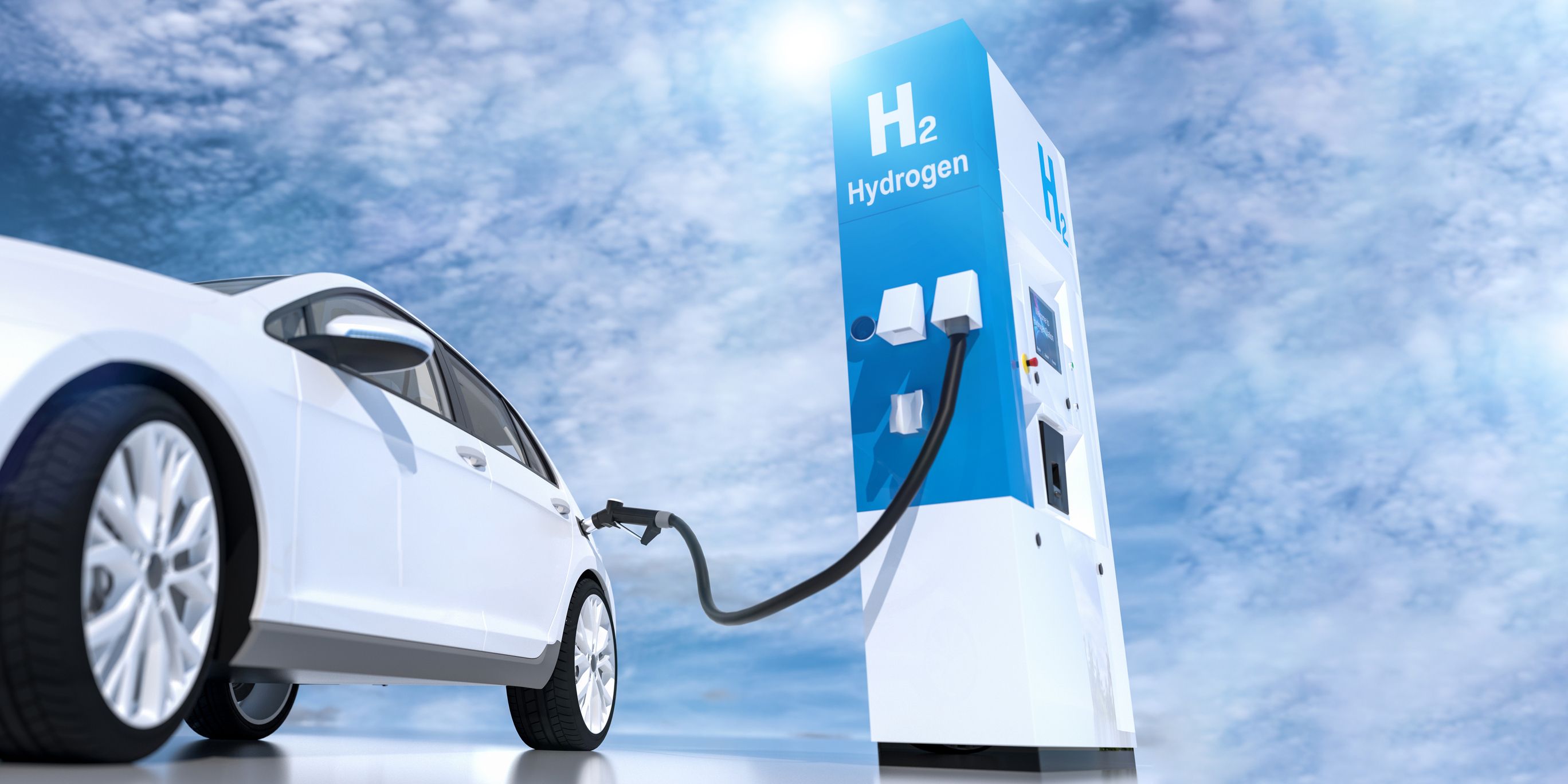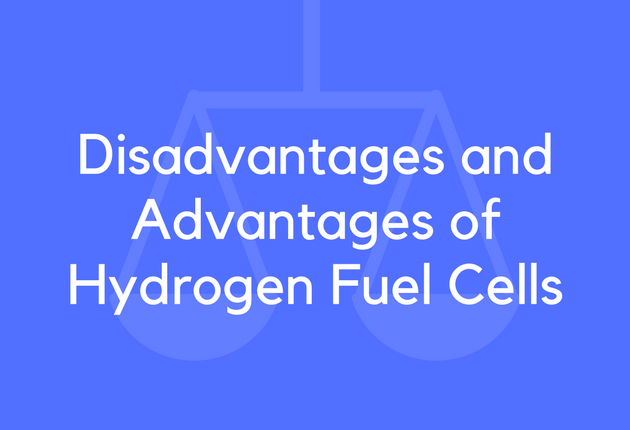This mixture initiates an electrochemical reaction producing electricity to power the electric motor without any toxic exhaust emissions. Because we have Hydrogen Fuel Cell Vehicles available in the market already.
 Toyota S 2 2 Megawatt Hydrogen Plant Could Ignite Fuel Cell Cars Slashgear
Toyota S 2 2 Megawatt Hydrogen Plant Could Ignite Fuel Cell Cars Slashgear
AFP via Getty Images Toyota was one company that truly believed in the hydrogen future.

Hydrogen fuel vehicles. It can be filled as quickly as a fossil-fuel equivalent and offers a similar driving distance to petrol. This pressurized hydrogen is further mixed with oxygen. Hydrogen cars are some of the best vehicles you can buy right now.
A fuel-cell electric vehicle is essentially a hybrid electric vehicle wherein the internal combustion engine is replaced with a fuel-cell stack. Drivers can refuel FCEVs at a traditional gasoline station in less than 5 minutes. Hydrogen Fuel Cell based vehicles are energy efficient and environment friendly.
Hondas Clarity Fuel Cell is the only hydrogen-powered vehicle available new that isnt built on a purpose-designed platform. A tiny market that includes Toyotas Mirai Hyundais Nexo and Honda Motors Clarity Fuel Cell these plug-less EVs are the alternative to their battery electric cousins. Several companies are working on hydrogen vehicles.
Hydrogen fuel cell cars are quite promising vehicles and may have the potential to replace conventional cars at one point in time. A fuel cell produces electricity by means of electrochemical reactions between a fuel typically hydrogen and the oxygen in the air. The only emission is water and heat.
Hydrogen can be used as a fuel source in cars trucks ships and even aircraft. Since the peak in 2018 barely higher than 2017 the FCV market is. The Toyota Mirai the Honda Clarity Fuel Cell and the Hyundai NEXO.
Hydrogen fuel cell cars produce zero exhaust emission and can drive 300 miles or more on one tank of fuel. During the reaction hydrogen. The onboard sources of power include hydrogen as well as an advanced battery system.
In contrast to other electric vehicles FCEVs produce electricity using a fuel cellpowered by hydrogen rather than drawing electricity from only a. Now were proud to introduce the second generation with a 30 increase in range better handling and sharper styling. Unlike most electric vehicles these are extremely versatile they also have a long range and all these things can really push the experience to the next level.
The new Toyota Mirai a hydrogen fuel cell electric vehicle on display at the 2019 Los Angeles Auto. Currently there are three hydrogen fuel cell cars available for lease or purchase. However since the technology behind hydrogen cars is not mature yet and the necessary infrastructure is missing it may take a quite long time until fuel cell cars will be a suitable and reliable alternative to.
A hydrogen fuel cell car comes equipped with a high-pressure hydrogen tank that feeds a fuel cell. But the market is constantly growing and the vehicles. Currently there are two car models in Australia Toyota Mirai sedan and the Mirari second generation and the Hyundai Nexo SUV.
Launched in 2014 the Mirai was one of the worlds first hydrogen fuel cell electric vehicles and a huge step towards our goal of achieving zero emission mobility by 2050. Welcome to the world of hydrogen fuel cell electric vehicles FCEVs. Like all-electric vehicles fuel cell electric vehicles FCEVs use electricity to power an electric motor.
How Do Fuel Cell Electric Vehicles Work Using Hydrogen. Sales of the hydrogen fuel cell cars never were particularly high in the US reminding us of a pilot project at best. It shares its body and interior with the hybrid variant of the Clarity.
As of December 2020 Hydrogen FCEVs are only sold in CA. The Fuel Cell Technology. Major automotive brands like Toyota Honda and Hyundai already have vehicles for sale while others are already testing their versions of Hydrogen FCEV.
The hydrogen fuel cell electric vehicle FCEV which simply runs on pressurised hydrogen from a fuelling station produces zero carbon emissions from its exhaust.



